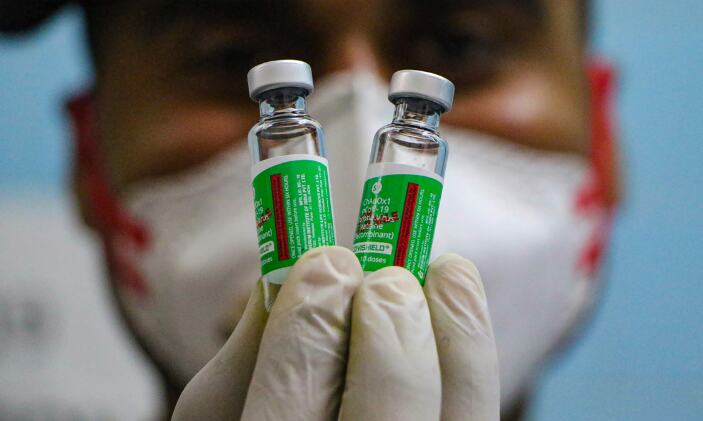Uncertain undertaking

Is India — the 'pharmacy of the world' — running out of vaccines? From being an exporter to an importer? These questions that is becoming increasingly frequent in media publications, both foreign and abroad. While the government itself has continued to deny any reports of such shortages as 'fear mongering' there are two major causes that are driving this concern. First, India has gone from being the largest exporter of vaccines to a nation that is importing vaccines like many others. Sources say that India is likely to import doses of the recently approved Sputnik vaccine as its Indian manufacturer Dr Reddy's prepares its manufacturing facilities. Now, to be clear, once manufacturing is set up, India is expected to manufacture up to 70 per cent of the global doses of Sputnik. So this state of importing vaccines is temporary. But all the same, it has raised plenty of alarm internationally. India is expected to be instrumental in the global effort to end COVID-19. The COVAX initiative in large part is reliant on the production of cheap and easily storable vaccines produced in India. Many of the poorest nations of the world are directly dependent on the programme to procure vaccines that would otherwise be all but out of reach of these nations. The world's largest vaccine maker, Serum Institute of India has also been forced to halt exports of its Covishield jab to countries like the UK and Brazil. Its plans to expand its production capabilities have also been pushed back by a fire at one of its facilities. With the ongoing surge of new cases hitting India, it is unknown at what point the vaccine exports would pick up again. The second cause for concern is the state of India's own vaccination campaign. India has so far given out over 114 million doses of the vaccine with around 14.3 million people being fully vaccinated. While the pace of delivery previously lagged far behind government target, the pace has once again picked up. It was recently reported that India reached 100 million doses administered the fastest of any country at 85 days. The goal currently is to inoculate 250 million people by July. The problem is that just three months into the vaccination campaign, at least 10 Indian states have reported shortages of available vaccines and, as a result, many vaccine centres have had to shut down. India is currently averaging around 30-40 lakh vaccine doses administered every day. At this pace, it has been estimated that India will be able to vaccinate 60 per cent of its population by May 2022. But India is simply not presently producing enough vaccines to keep up this pace. The government is now fast-tracking approval of two more foreign vaccines, Johnson & Johnson and Pfizer but it is unlikely for the supplies to arrive in time to clear the existing bottleneck of vaccine shortages. There are other concerns as well. The government is currently administering vaccines to those above the age of 45 but the new wave is being noted to affect a significantly larger proportion of those under the age of 45. This has led to many requests for the government to open up the vaccination campaign to all above the age of 18. It was even recently reported that a plea was filed before the Supreme Court with this very appeal. Now, it is debatable as to whether the government decision to limit vaccine availability to those above 45 is the correct one or not. On the one hand, it is easy enough to acknowledge that the government is dealing with the unprecedented task of vaccinating over a billion people. A staged plan of vaccination with the focus of priority is a fair method of administering the vaccine. It is also true that there are less severe cases of Covid in younger age groups even if they are getting infected more. On the other hand, it is also true that leaving younger people unvaccinated for longer can have the consequence of giving the virus more hosts and time to mutate. Vaccinating everyone above the age of 18 will likely also bring down the average wastage of vaccines across India. There are also concerns that India's pace of vaccinations, while fast, is not fast enough to reach herd immunity in time. By the time India reaches herd immunity at around 70 per cent of its people being fully vaccinated, many of those who initially received their jabs may have already lost their immunity and will likely require some kind of follow-up shots to continue their immunity. This is not taking into account any new variants of the virus that may have popped up by that time to complicate the course of India achieving herd immunity. In short, the process is long, harrowing and uncertain. India will no doubt emerge from its current vaccine shortage but it is unclear how it will fare against the many impending challenges of a vaccine campaign so monumental. And what of the world that is relying on India for vaccine supplies?



